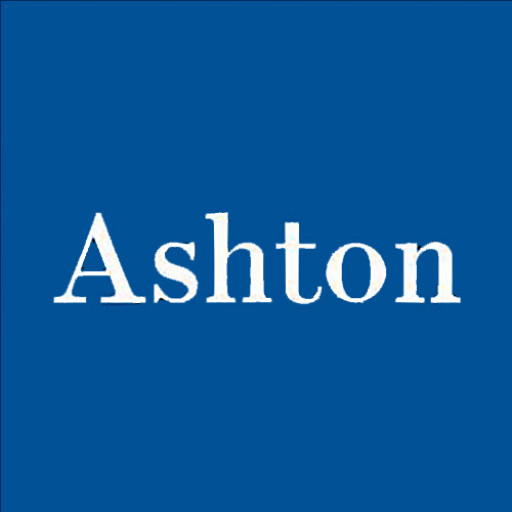The Light Vehicle Mechanical Technology program at Ashton College is a comprehensive training course designed to equip students with the essential skills and knowledge required to excel in the automotive repair and maintenance industry. This program provides a detailed understanding of the fundamental concepts of light vehicle systems, including engines, transmissions, brakes, suspension, electrical systems, and other critical components. Students will gain practical hands-on experience through laboratory workshops and real-world applications, enabling them to confidently diagnose, repair, and maintain a wide range of modern vehicles. The curriculum emphasizes safety protocols, diagnostic techniques, and troubleshooting skills, ensuring that graduates are prepared to meet the demands of the competitive automotive service industry. Throughout the program, students will also develop a thorough understanding of technical manuals, repair procedures, and the use of diagnostic tools and equipment. In addition to technical competencies, the course emphasizes professionalism, communication skills, and customer service to prepare students for successful careers in automotive repair facilities, dealerships, and independent garages. The program is suitable for individuals passionate about automobiles and aiming to pursue a career as a certified automotive service technician. Upon completion, graduates will be well-equipped to take industry-recognized certification exams and pursue employment opportunities in the automotive service industry. Ashton College’s Light Vehicle Mechanical Technology program is committed to delivering high-quality education that combines theoretical knowledge with practical experience, preparing students to become skilled, confident, and competitive automotive technicians.
The Light Vehicle Mechanical Technology program at Ashton College is designed to provide students with the comprehensive skills and knowledge necessary for a successful career in the automotive repair and maintenance industry. Throughout the program, students will gain a deep understanding of the fundamental principles of engine mechanics, electrical systems, suspension, steering, and brake systems. The curriculum emphasizes hands-on training, allowing students to develop practical skills in diagnosing, repairing, and maintaining light vehicles such as cars, trucks, and SUVs.
Students will acquire proficiency in using modern diagnostic tools and equipment, ensuring they are prepared to handle the technological advancements present in today’s automotive industry. The program covers safety procedures and best practices for working in an automotive workshop environment, fostering a professional mindset and attention to detail. Additionally, students will learn about vehicle inspection standards, fluid systems, fuel systems, and emission controls, equipping them with a well-rounded understanding of vehicle operation and repair.
Throughout the course, students will engage in both theoretical lessons and practical lab sessions, where they will work on real vehicles under the supervision of experienced instructors. This combination of classroom learning and practical application ensures that graduates are job-ready and confident in their technical abilities. The program also emphasizes customer service skills, communication, and teamwork, which are essential for a successful career in automotive service industries.
Upon completion of the Light Vehicle Mechanical Technology program, graduates will be qualified to pursue careers as automotive service technicians, repair specialists, or maintenance personnel. They will be prepared to work in various settings, including independent garages, dealership service departments, and fleet maintenance facilities. Ashton College’s program is committed to preparing students for employment in the dynamic and evolving automotive sector, ensuring they have the skills needed to adapt to new technologies and industry standards.
Admission requirements for the Light Vehicle Mechanical Technology program at Ashton College typically include a high school diploma or equivalent educational qualification. Applicants are expected to present proof of completion of secondary education, such as a diploma or GED certificate, demonstrating the necessary foundational knowledge for technical training. Prior experience in automotive repair or mechanical work may be considered an asset but is not always mandatory. Additionally, candidates are often required to pass an entrance assessment or interview to evaluate their aptitude and motivation for the program. English language proficiency is essential, and applicants may need to submit TOEFL or IELTS scores if their primary language is not English. Some programs may also require a criminal background check or health clearance to ensure student safety and readiness to participate in hands-on training components. Prospective students should demonstrate a strong interest in automotive technology and mechanical systems, along with basic skills in mathematics and physics, which are critical for understanding concepts such as engine mechanics, diagnostics, and repair procedures. Financial documentation or proof of funding might be necessary to verify the ability to cover tuition fees and related expenses. The program aims to prepare students for careers in automotive service and repair, and thus, applicants should possess good problem-solving skills, manual dexterity, and attention to detail. It is recommended that candidates review the specific admission criteria listed on Ashton College’s official website or contact the admissions office directly for the most current and detailed requirements. The application process usually involves submitting official transcripts, completing an application form, and paying the application fee. Meeting these requirements helps ensure that students are well-prepared to undertake the rigorous coursework and practical training essential for successful employment in the automotive industry.
The financing of the Light Vehicle Mechanical Technology program at Ashton College primarily involves a combination of government funding, student paid tuition fees, and potential financial aid options. Tuition fees are set according to the college's annual fee schedule and may vary depending on the program duration and delivery mode. Students are encouraged to explore government student loans, grants, and bursaries available for vocational training programs, which can significantly reduce the financial burden. Ashton College also offers payment plans and installment options to facilitate manageable payment schedules for enrolled students. Scholarships specific to technical training and trades may be available based on academic performance, financial need, or other criteria. International students, if eligible, should verify visa requirements and potential funding support applicable to their status. The college provides detailed guidance regarding the application process for financial assistance, including information about the Canadian government’s Canada Student Grant and Loan programs, as well as provincial funding opportunities. Additionally, apprenticeship or cooperative education components of the program can sometimes access alternate funding streams. Private lenders or financial institutions may also offer student lines of credit tailored to vocational students. The college's financial department works closely with students to ensure they understand available options and complete necessary paperwork to access funding sources. Overall, the financial planning for studies in Light Vehicle Mechanical Technology at Ashton College is designed to be comprehensive and accessible, aiming to support students in achieving their educational and career goals without undue financial hardship.
Light Vehicle Mechanical Technology at Ashton College offers a comprehensive training program designed to prepare students for careers in the automotive repair and maintenance industry. The program focuses on developing practical skills and theoretical knowledge related to the diagnosis, repair, and servicing of light vehicles, including cars and small trucks. Students will learn about modern automotive systems, including engines, transmissions, brakes, suspension, steering, electrical systems, and emissions equipment. The curriculum emphasizes both safety procedures and industry standards to ensure graduates are well-equipped to meet current workplace requirements. Throughout the program, students engage in hands-on training using state-of-the-art tools and equipment, providing them with valuable practical experience that is highly sought after by employers.
The program is structured to combine classroom instruction with real-world shop experience, offering students opportunities to work on actual vehicles under supervision. This approach allows students to apply technical concepts learned in class directly to practical situations, fostering a deeper understanding of automotive repair processes. Some courses may include troubleshooting, preventive maintenance, component replacement, and warranty procedures. In addition, students learn about customer service, communication skills, and technical report writing, preparing them for a professional environment.
Ashton College’s Light Vehicle Mechanical Technology program may also include modules on automotive safety, environmental regulations, and emerging automotive technologies such as hybrid and electric vehicles. The program aims to produce graduates who are confident in their technical abilities and capable of working effectively in automotive repair shops, dealerships, or other related industries. Graduates typically obtain a certificate or diploma, which can serve as a stepping stone toward professional certification or further education in automotive technology. The program is suitable for individuals interested in joining the automotive repair industry quickly with relevant skills for employment or those seeking to upgrade their existing knowledge. Given the practical focus of the program, students are encouraged to develop problem-solving skills, attention to detail, and a strong work ethic to succeed in this dynamic field.










